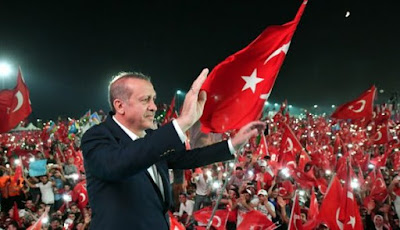Across the Arctic, the permafrost is thawing and, like everything else up there, it's happening faster than we had ever foreseen.
CBC News reports on Inuvik where the town's buildings are sinking, settling into what once was their frozen terra firma. Foundations are so compromised that buildings are being demolished.
Half of Canada is blanketed in some form of permafrost, including patches in the northern reaches of Ontario and the Prairie provinces.
But in many places, including around Inuvik, NWT, as much as 90 per cent of this "ground" is actually frozen water. (The rest is dirt, rocks and decomposed organic material that was once trees, shrubs, even animals.)
For years now, buildings in Inuvik have been gradually sinking into the ground as it softens. Others are so unstable, they are literally sliding off their foundations.
...
Scientists in the Northwest Territories, Alaska and Siberia are now realizing that as the ground under them melts, it will not only make life harder for the people living in the Arctic, but will in fact speed up climate change around the globe.
The World Meteorological Organisation says the globe is now in uncharted territory, with temperatures in 2016 the hottest ever recorded.
The World Meteorological Organisation says the globe is now in uncharted territory, with temperatures in 2016 the hottest ever recorded.
...
No one knows exactly what it will unleash when it melts. But no one thinks it will be good.
At the very least, it's changing the landscape. The Mackenzie Delta is a maze of small lakes and broad hillsides. People who live in Inuvik say they don't have to travel far from town in the summer to see craters that formed when the surface layer of land simply collapsed.
And then, with the drying of the tundra and thawing of the permafrost comes the methane, for hundreds of thousands of years safely sequestered in the icy permafrost.
So, what is our federal government doing about this. Is it riding to the rescue of this region in distress? Hardly, it - the government of Justin Trudeau - is ramping up bitumen production and export. Justin Trudeau is intent on making the plight of the far north worse, much worse. Judging by the Trudeau government's policies, he can't make it worse enough, fast enough. Put that in your smug Liberal pipe and smoke it.















